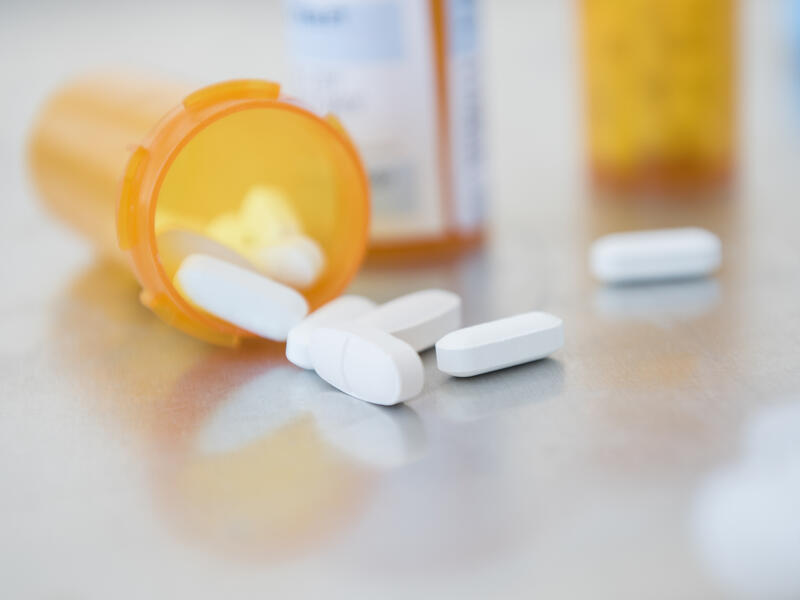That expired pain prescription from your knee surgery shouldn’t hang out in your medicine cabinet for years. Unused medications are dangerous, especially if children, teens or pets can access them.
Every year, misused prescriptions lead to accidental overdoses or addiction. You can protect your household and neighborhood by safely disposing of unused or expired prescriptions. Anonymously drop off medications year-round at a take-back location near you.
Find take-back sites near you:
Special take-back days collect tons of drugs
The U.S. Drug Enforcement Administration sponsors a National Prescription Drug Take Back Day twice a year, typically in April and October. While you can use take-back sites any time of the year, these biannual events promote awareness of the dangers of unused medications.
These events regularly collect hundreds of tons of unused drugs – all dropped off in one day. That total tonnage shows there’s an increased commitment to getting these drugs out of circulation. However, it also suggests there’s a huge number of drugs sitting idle in homes. These medications pose potential problems.
“People need to realize that prescription medications are not safe to be just laying around,” said Jesse Breidenbach, Sanford Health system executive director of pharmacy. “That’s particularly true with the opioid issues that we see across the country.”
At risk of addiction
The CDC estimates overdose deaths from opioids alone increased to 75,673 in the 12-month period ending in April 2021, up from 56,064 the year before. The CDC’s National Center for Health Statistics indicate that there were an estimated 100,306 total drug overdose deaths in the United Sates during the same period, increasing 28.5% from the 78,056 during the same period the year before.
This shows there’s still a lot of work to do.
Throughout Sanford Health, health care providers are sensitive to the potential dangers. Many providers act as “opioid stewards,” meaning they prescribe only the appropriate amounts of pain management medications.
How to dispose of your medications
For patients, there are right ways and wrong ways to dispose of medications. Just throwing them away in the trash does not ensure safety. For that reason, many Sanford locations offer the MedSafe Medication Disposal System. These drop boxes are double-locked safe boxes designed to meet the requirements of the DEA Controlled Substances Act.
“We’ve heard of cases where medication was thrown away but then retrieved from garbage cans,” Breidenbach said. “The safe boxes are easy and convenient.”
In North Dakota, drugs in their original or unopened packages can also be donated to people who need them. Participating locations will distribute these drugs to those who can’t afford their medications. Learn more about the medication donation program in North Dakota.
The easiest and quickest way to rid yourself of unused prescription medications would be to flush them. But that can sometimes contaminate the environment, including surface and drinking water.
There are medications that are OK to flush if a drug take-back location isn’t available. Check the FDA’s flush list. If the medication is not on the list, it’s best to dispose of them in a safe box.
“Ongoing awareness of this is going to help,” Breidenbach said. “We shouldn’t be keeping drugs around. If you don’t plan to use them, get rid of them in a safe manner.”
FAQs about medication disposal
Why use medication disposal?
It allows you to dispose of your unwanted or unused medications safely and properly. And it helps reduce the chance of others accidentally taking or intentionally misusing those medications.
Is the disposal confidential?
Medications dropped in the receptacle are not sorted in any manner. When the box is full, it is sealed for disposal, allowing patient information to be kept confidential.
How are my medications destroyed?
Medications are destroyed according to DEA rules following the Secure and Responsible Drug Disposal Act of 2010.
What can be placed in a medication disposal system?
- Prescription medications
- Controlled substance medications
- Over-the-counter medications
- Vitamins
- Medicated lotions and creams
- Liquid medications
- Transdermal skin patches
Learn more
- Poison safety tips for parents with small children
- Keep kids safe: The ABCs of childhood injury prevention
- Home safety tips help you age in place
…
Posted In Chemical Dependency, Community, Emergency Medicine
